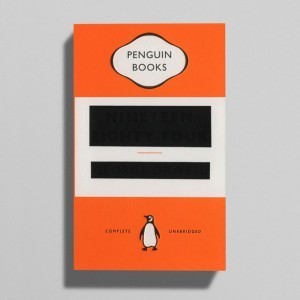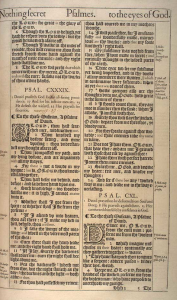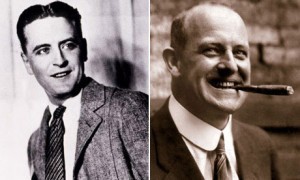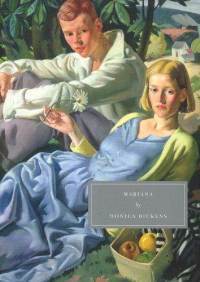The Paris Review's Blog, page 858
January 8, 2013
Kleist’s Crime Blotter
On the afternoon of October 1, 1810, people started gathering in front of Berlin’s Hedwigskirche, where a new paper would be selling its first issue. By evening the crowd had grown so large that guards were posted to maintain order. The whole city, it seemed, had turned out for the launch of the paper, the Berliner Abendblätter. Even the king had asked for a copy.
Officially, the Abendblätter was edited anonymously. Among the city’s literary elite, however, it was widely known that the paper was written almost single-handedly by Heinrich von Kleist, a young writer. Kleist’s plays and novellas were written with exceptional elegance, but were preoccupied with rape, war, and natural disaster. Kleist had once enjoyed the patronage of Goethe, but after a disastrous theatrical collaboration the two writers found it impossible to continue working together. Goethe admitted that his protégé filled him with revulsion and horror, “as though a body nature had intended to be beautiful were afflicted with an incurable disease.”
1984, and Other News
Check out the new 1984 cover. What do you think?
The Thomas Pynchon rumors: a breakdown.
How should Shakespeare really sound?
New Yorkers are spending more time in libraries … but not to read.
Love it or leave it, this is our world: Neruda Cats.
January 7, 2013
Save the Date: The Paris Review Revel
Variously described as “the best party in town” and “prom for New York intellectuals,” the legendary Spring Revel is legendary for a reason. Tuesday, April 9, join Paris Review readers, supporters, and writers at Cipriani 42nd Street for an always unforgettable evening of cocktails, dinner, and revelry. This year we celebrate our sixtieth year in print and honor Paula Fox with the annual Hadada Award.
Get your tickets here.
Zora Neale Hurston on Zombies
Psalm 139
If you grew up going to church, you already know Psalm 139. Even if you didn’t, parts of it are floating around your brain. It is a favorite of pro-life people, because it talks about God recognizing us in the womb, taking care of us, and knowing how we’ll turn out. (It is also—I’d bet money on this—the source of our hundred-year-old American expression “search me.”)
Psalm 139 gets my vote for being the most beautiful of the psalms in the King James version. The other day I happened to read it in French and it left me cold—it conjured up surveillance—whereas the high-low diction of the King James translators sings and is intimate, because you would only sing this way to a God you loved: “If I ascend up into heaven, thou art there: if I make my bed in hell, behold, thou art there. If I take the wings of the morning, and dwell in the uttermost parts of the sea, even there thy hand shall lead me.” It’s like an advertisement for the English language. Read More »
CivilWarLand in Bad Decline: Preface
We loved Joel Lovell’s profile of George Saunders in yesterday’s Times Magazine. Lovell quotes generously from Saunders’s preface to the new edition of CivilWarLand in Bad Decline. By special arrangement with the publisher, we bring you the preface in full.
1.
This book was written in the Rochester, New York, offices of Radian Corporation between 1989 and 1996, at a computer strategically located to maximize the number of steps a curious person (a boss, for example) would have to take to see that what was on the screen was not a technical report about groundwater contamination but a short story.
I had graduated from the Syracuse MFA program in 1988 and had been writing stories that owed everything to Ernest Hemingway and suffered for that. They were stern and minimal and tragic and had nothing to do whatsoever with the life I was living or, for that matter, any life I had ever lived.
We billed our hours, and I would respond to any disrespect toward my person by declaring (in my mind, always only in my mind): “Thanks, a-hole, your project has just funded a Saunders grant for the arts.” And, for an edit that could have been done in an hour, I would bill that program manager’s project an hour and a half, then use the liberated half hour to work on my book.
This book.
The Fitzgerald-Wodehouse Friendship, and Other News
Robert McCrum: “In the department of lost meetings, one near-miss that’s always fascinated me is the on-off friendship between F. Scott Fitzgerald and P. G. Wodehouse, both of whom came to prominence in America at the end of the Great War.”
And so it begins: hot on the heels of best-of 2012, The Millions brings us the most anticipated reads of 2013.
New York digests the latest in self-help (or, as Barnes & Noble would have it, self-improvement) so you don't have to.
Can we separate the work of Ted and Sylvia from the myth?
One author dishes the dirt on publishing a book.
January 4, 2013
Harris Khalique, Islamabad, Pakistan
A series on what writers from around the world see from their windows.

In the afternoon when the sun is blazing and in early evening when its orange hue allows me to stare into the horizon, I look out of this window in my office that opens into a terrace but offers a wider view. I see the palatial houses and imagine the few who live there in luxury. Then I think of the many who serve them—who hurl rolls of newspapers onto their porches, bring groceries, drive cars, sweep floors, toil in the sizzling kitchens. They dwell in shanty settlements ensconced within the affluent neighborhoods or live in crammed quarters in the backyards of these houses.
Before dusk I can look beyond the trees and catch a clear glimpse of the thin-looking white minarets of the Faisal Mosque, one elegant and expansive structure on the slopes of the Margalla Hills. These minarets remind me of the worst dictator we have had. He lies buried in the gardens of this mosque while we still struggle to rein in the beasts of ignorance and bigotry he unleashed.
Last week when it stopped raining after several hours, I decided to go beyond the window and walk across the terrace to look over the street from above. I saw a young girl squatting by a small puddle and folding paper into boats. An odd mix of intense sorrow and great hope enveloped my heart. —Harris Khalique
In Praise of Bookstore Cats
 In addition to bringing the world the glory that is the Weird Book Room (plus, of course, the main site itself), AbeBooks curates a gallery of bookstore cats from all over North America. (We imagine international felines are welcome; the current batch just happens to hail from the U. S. and Canada. Certainly the resident orange cat at Paris’s Tea and Tattered Pages is a notable omission!) While a number of the kitties on display have literary names, Booker Fox, of the Book Nook in Mexico, Missouri, seems to be the only one with her own Facebook page, on which she gives literary recommendations. (The Street of the Fishing Cat was a recent pick.)
In addition to bringing the world the glory that is the Weird Book Room (plus, of course, the main site itself), AbeBooks curates a gallery of bookstore cats from all over North America. (We imagine international felines are welcome; the current batch just happens to hail from the U. S. and Canada. Certainly the resident orange cat at Paris’s Tea and Tattered Pages is a notable omission!) While a number of the kitties on display have literary names, Booker Fox, of the Book Nook in Mexico, Missouri, seems to be the only one with her own Facebook page, on which she gives literary recommendations. (The Street of the Fishing Cat was a recent pick.)
What We’re Loving: Comfort Reads, Evil Santas
On the train down to Washington I read “Stage Mothers,” Elif Batuman’s article about a women’s theater troupe in rural Turkey, and kept pretending to have a cold so the guy sitting next to me wouldn’t think I was crying over the international issue of The New Yorker. Even by Batuman standards, it’s a knockout. If you missed it, go fish it out of the recycling. (Then read her conversation with J. J. Sullivan in the current issue of the Review.) —Lorin Stein
In her introduction to Monica Dickens’s Mariana, recently rereleased by the unimpeachable Persephone Press, Harriet Lane describes it as a “‘hot-water bottle’ novel, one to curl up with on the sofa on a wet Sunday afternoon.” And this story of a young girl growing up in England in the 1930s is certainly comfort-reading at its finest. While dated at points (the moments of casual anti-Semitism are certainly jarring), it’s a fun read, breezy and funny and often touching, with beautifully observed bits of everyday life throughout. Dickens, the great-granddaughter of Charles, was a prolific and popular author; for anyone with multiple winter Sundays to fill, I’d also recommend her 1939 memoir One Pair Of Hands, which details her stint, much to her family’s chagrin, as a cook-general in some of London’s wealthiest households. —Sadie O. Stein
Before the holiday break, I had some time to explore my Netflix account and found, to my excitement, a hidden gem entitled Rare Exports: A Christmas Tale. “This unusual Christmas story is set in the frozen beauty of Finland,” the description reads, “where local reindeer herders race to capture an ancient evil: Santa Claus.” What more could you ask for, to prepare yourself for holiday travel and awkward family soirees, than an R-rated horror film that has more in common with Die Hard than It’s A Wonderful Life? Filled with dry Scandinavian wit and reindeer slaughter, while this isn’t a film for the whole family, it’s one that’ll be playing in the Alvarez household for many Christmases to come. —Justin Alvarez
In a bout of plain old mean-spiritedness, I’ve been relishing the bad reviews of the film Les Misérables. Hugo’s book is among my all-time favorites—there’s just something about those sweeping nineteenth-century social novels—so much so that I wanted to change my name to Jean Valjean after reading it (a confession that brought ridicule from my colleagues here; I stand by my dream). The casting of the film is so absurd, as is the excessive emotion. Oh, the drama! Oddly enough, I inadvertently took David Denby’s advice to those who liked the film to watch Singin’ in the Rain as an example of what good musical theater can be. And he’s right: I loved it. —Nicole Rudick
Holidays are certainly the best time to try out new recipes; most people are pleasantly surprised by an unfamiliar dish amongst the old family standards. My sisters and I have a Twelve Days of Christmas party each December and always aim to have a few things on the buffet that weren’t there the year before. This time around, my older sister’s wassail was the hit of the night, not in the least because it comes with a great history that necessarily involves the host singing one (or more) of the many carols about drink. Seeing as it’s Christmas until Sunday, I’m planning on enjoying another batch of wassail before the season ends. —Clare Fentress
Perhaps few will share my excitement about the following: there is an audiobook of The Golden Bough, and it is free, and you can download it here. —S.O.S.
The Paris Review's Blog
- The Paris Review's profile
- 305 followers









